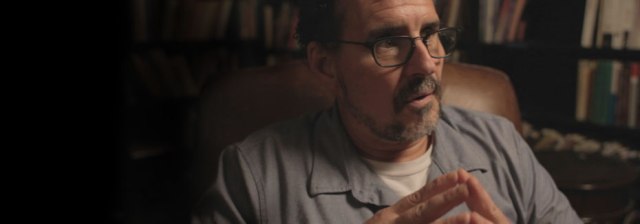You probably feel like you’ve heard Greg’s name enough from us the past month or so since I’ve been responding to his recent book. But I was checking out a couple of older posts and thought these snippets from an earlier Greg were wonderful.
 Now is as good a time as any to throw up some more quotes from Greg Boyd’s Trinity and Process to demonstrate how incompatible this work is with his present belief in the dissolution (on the Cross and in the womb of Mary) of God’s triune experience. Enjoy.
Now is as good a time as any to throw up some more quotes from Greg Boyd’s Trinity and Process to demonstrate how incompatible this work is with his present belief in the dissolution (on the Cross and in the womb of Mary) of God’s triune experience. Enjoy.
“…this modification of Hartshorne’s system shall allow us to conceive of God as essentially constituted by an unsurpassable aesthetic experience of God’s own self-relationality….God is best conceived as being at once unsurpassable in God’s definitional aesthetic disposition and actual eternal enjoyment of what this disposition produces within Godself….” (p. 176, emphasis ours)
“Once we have determined that God is to be conceived of as antecedently actual, internally relational, and ‘more than’ self-sufficient, there is no longer any need to postulate an eternal world to provide the ground and the material for God’s concrete experience of goodness. God is, in this view…
View original post 319 more words
“Once we have determined that God is to be conceived of as antecedently actual, internally relational, and ‘more than’ self-sufficient, there is no longer any need to postulate an eternal world to provide the ground and the material for God’s concrete experience of goodness.”
Yes, positing Greg’s TNP deity that acts (and therefore creates) absolutely spontaneously is one way of positing a creation, thereby eliminating the need for a necessary god-world relationship to account for God’s experience of social pleasure. But that kind of theism doesn’t allow you to explain any world-event theistically with any inductive plausibility. Because spontaneously-caused events are as unpredictable as uncaused events.
Alternatively, positing a libertarianly-free deity that perpetually exists in social relationship, who freely creates, in part for another necessary person, also eliminates the need for a necessary god-world relationship. And this kind of theism provides an explanation for the validity of induction itself, and it also provides for explaining specific world-events theistically, with inductive plausibility.
So as long as Greg is no longer committed to a version of Anselmian theism that requires impassibilism, he doesn’t need to posit the TNP version of theism to be coherent and plausibly explanatory in terms of a creating God.
His real task, if he’s committed to making sense of trinitarianism in terms of human concepts, is defining “divine person” consistent with multiple divine persons constituting only one existent (i.e., being). Would he claim that a divine person is an attribute of the divine being? Is it meaningful to say that an attribute of a being can be conscious of 1st person experience? Or are divine persons not conscious of 1st person experience? Seems like a hard task that doesn’t seem to advance explanation of world events (including creation itself) one iota.
LikeLike
I’d love to see Greg get back into metaphysics!
LikeLike
Me too. Even when I disagree with him, I find his thoughts as thought-provoking as those of C.S. Lewis, even though I disagree with Lewis on several matters, as well.
LikeLike